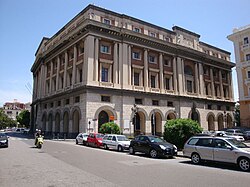
The Venice Film Festival or Venice International Film Festival is an annual film festival held in Venice, Italy. It is the world's oldest film festival and one of the "Big Five" International film festivals worldwide, which include the Big Three European Film Festivals, alongside the Toronto Film Festival in Canada and the Sundance Film Festival in the United States. The Festivals are internationally acclaimed for giving creators the artistic freedom to express themselves through film. In 1951, FIAPF formally accredited the festival.

William Norman McLaren, LL. D. was a Scottish Canadian animator, director and producer known for his work for the National Film Board of Canada (NFB). He was a pioneer in a number of areas of animation and filmmaking, including hand-drawn animation, drawn-on-film animation, visual music, abstract film, pixilation and graphical sound. McLaren was also an artist and printmaker, and explored his interest in dance in his films.
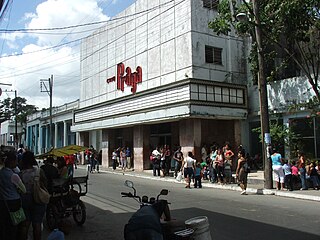
Cinema arrived in Cuba at the beginning of the 20th century. Before the Cuban Revolution of 1959, about 80 full-length films were produced in Cuba. Most of these films were melodramas. Following the revolution, Cuba entered what is considered the "Golden age" of Cuban cinema.

Cinema of Colombia refers to the film industry based in Colombia. Colombian cinema began in 1897 and has included silent films, animated films and internationally acclaimed films. Government support included an effort in the 1970s to develop the state-owned Cinematographic Development Company which helped produce some films yet struggled to stay financially viable. FOCINE went defunct in 1993. In 1997 the Colombian Congress approved Law 397 of Article 46 or the General Law of Culture with the purpose of supporting the development of the Colombian film industry by creating a film promotion mixed fund called Corporación PROIMAGENES en Movimiento. In 2003 Congress also approved the Law of Cinema which helped to restart the cinematographic industry in Colombia.

João Manuel Relvas Leopoldo Botelho is a Portuguese film director.
Fountains of Rome, P 106, is a tone poem in four movements completed in 1916 by the Italian composer Ottorino Respighi. It is the first of his three tone poems about Rome, preceding Pines of Rome (1924) and Roman Festivals (1928). Each movement depicts a setting at one of Rome's fountains at a different time of the day, specifically the Valle Giulia, Triton, Trevi, and Villa Medici. The premiere was held at the Teatro Augusteo on 11 March 1917, with Antonio Guarnieri conducting the Augusteo Orchestra. Respighi was disheartened at its initial mild reception and put away the score, until the piece was re-evaluated by the public following a February 1918 performance by conductor Arturo Toscanini which brought the composer international fame. The piece was published by Casa Ricordi in 1918.

The Locarno Film Festival is an annual film festival, held every August in Locarno, Switzerland. Founded in 1946, the festival screens films in various competitive and non-competitive sections, including feature-length narrative, documentary, short, avant-garde, and retrospective programs. The Piazza Grande section is held in an open-air venue that seats 8,000 spectators.
The Golden Age of Mexican Cinema is a boom period in the history of Mexican cinema, which began in 1936 with the premiere of the film Allá en el Rancho Grande, and culminated in 1956.

While the Peruvian film industry has not been nearly as prolific as that of some other Latin American countries, such as Mexico or Argentina, some Peruvian movies produced enjoyed regional success. Historically, the cinema of Peru began in Iquitos in 1932 by Antonio Wong Rengifo because of the rubber boom and the intense arrival of foreigners with technology to the city, and thus continued an extensive, unique filmography, with a different style than the films made in the capital, Lima.

The Havana Film Festival is a Cuban festival that focuses on the promotion of Latin American filmmakers. It is also known in Spanish as Festival Internacional del Nuevo Cine Latinoamericano de La Habana, and in English as International Festival of New Latin American Cinema of Havana. It takes place every year during December in the city of Havana, Cuba.
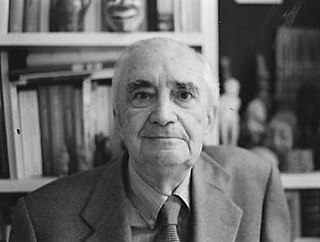
Virgilio Tosi was an Italian documentary filmmaker and historian of early film.
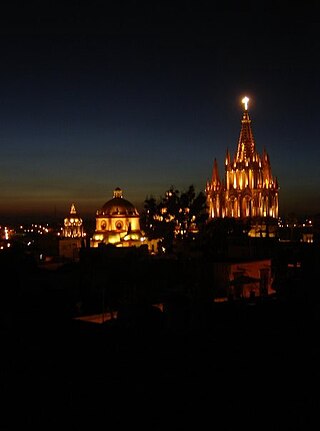
The Guanajuato International Film Festival or GIFF is an annual international film festival, held since 1998. It is held during the final week of July in San Miguel de Allende and Guanajuato City, Mexico. GIFF was formerly known as Expresión en Corto International Film Festival.
The Europe Theatre Prize(Premio Europa per il Teatro) is an award of the European Commission for a personality who has "contributed to the realisation of cultural events that promote understanding and the exchange of knowledge between peoples". "The winner is chosen for the whole of his artistic path among notable personalities of international theatre considered in all its different forms, articulations and expressions". The prize was established in 1986 when Carlo Ripa di Meana was first Commissioner of Culture. In those years a contribution to its creation also came from Melina Mercouri, who was patroness of the Prize, and from Jack Lang, then French Minister of Culture and current President of the Prize. The European Parliament and the European Council have supported it as a "European cultural interest organisation" since 2002.

Simone Borrelli is an Italian actor, director, singer, songwriter and musician.

Stefano Bessoni is an Italian filmmaker, stop-motion animator and illustrator.

Museo del Cine Pablo Ducrós Hicken is a museum of cinema of Argentina located in Buenos Aires. It was established on 1971 and holds a collection of 65,000 reels of film.

Universidad del Cine is a private not-for-profit university located in the neighbourhood of San Telmo in Buenos Aires, Argentina. It was founded in 1991 by Manuel Antin, who currently serves as Rector. The school offers undergraduate, graduate and post graduate programmes focused in film and media arts.
The following is a timeline of the history of the city of Salerno in the Campania region of Italy.

Antonella Salvucci is an Italian model, journalist, TV personality, and actress.
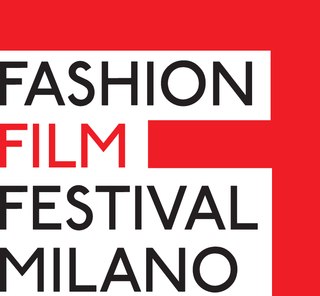
Fashion Film Festival Milano is an international fashion film festival and cultural event that takes place annually during Milan Fashion Week in Milan, Italy in collaboration with Camera Nazionale della Moda Italiana. Founded in 2014 by Constanza Cavalli Etro, Fashion Film Festival Milano presents fashion film as a cinematographic product realized by the fashion industry as a communication and marketing tool. Since 2017, Fashion Film Festival Milano takes place as a hybrid event with digital screenings and in-person events that introduce fashion film to a global audience.
